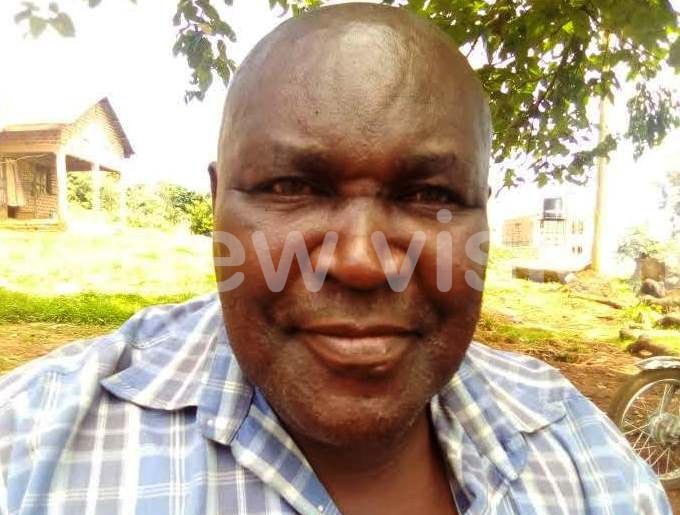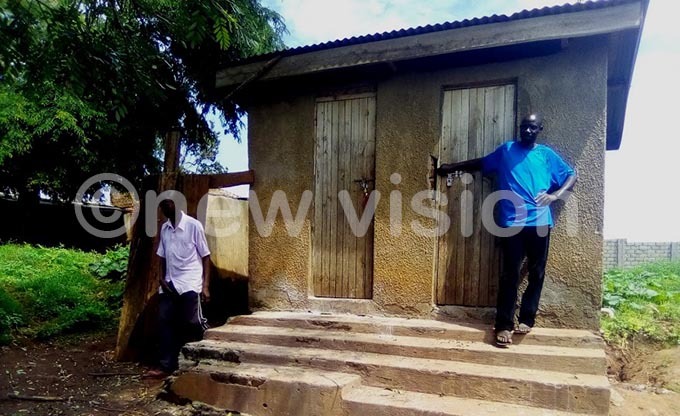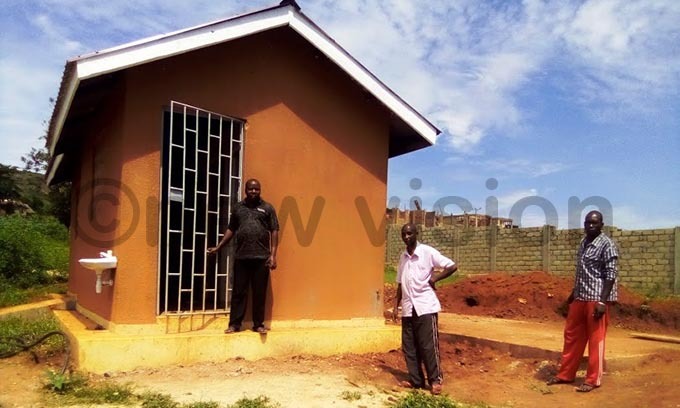Over 6,000 Busana residents have no latrines
It is only three families with latrines and to avoid the public from invading them, they are enclosed, while the filled ones have since been locked up by the landing site authorities.
HEALTH - About 6,700 people at Busana landing site in Buikwe district are at the verge of suffering deadly disease outbreaks because they are living without toilets.
Busana landing site on Lake Victoria manages with only six public toilets provided by development partners and well-wishers.
The fill-up of all the six sanitary facilities has condemned the fishermen and the other community members to open defecation on the shores and lake as the other alternative.
According to Busana village chairperson, Timothy Ssentongo, three of the toilets were provided by ‘Water Mission' some years back, where the community fundraised to construct three other pit latrines.

Busana village chairman, Timothy Ssentongo
Taking New Vision around the landing site, Ssentongo disclosed that some of the toilets filled up last year and others this year.
"On the landing site, it is very complicated for individuals to sink latrine pits because of the rock underground. It is possible for those people who are well off," he said.
It is only three families with latrines and to avoid the public from invading them, they are enclosed, while the filled ones have since been locked up by the landing site authorities.
"Some of them can be emptied but the problem is accessibility. You know, with unplanned settlements on the landing sites, there is no passage for trucks to empty them," Ssentongo said.
Ssentongo, who also owns, Little Angels Nursery and Primary School, at the landing site, said he has since offered one of the school latrines which was constructed outside the school perimeter wall, to cater to residents, although it cannot accommodate them all.
On a brighter side, three toilets being constructed by Iceland in conjunction with Busoga Trust have given hope to the residents, even though they want their construction done faster.
Disease burden
Due to compromised sanitation standards, diseases such as diarrhoea, dysentery, malaria, Typhoid and Bilharzia are common on the landing site
Julius Paul Muzale, a clinician at Christ the King health centre, coordinating a health programme called "Mwana na Maama" in collaboration with St. John Ambulance, confirmed that many people tested and treated during a medical camp at the landing site on Thursday suffered from the mentioned the diseases.

One of the toilets which filled-up
"The prevalence of malaria and diarrhoea was more worrying mostly among the children. Out of over 300 people treated, almost 90% suffered malaria," he said.
The World Bank in 2012 indicated that Uganda loses about sh389b every year to treat poor sanitation-related diseases. The disease burden is a major setback to development in developing countries.
Criminalizing open defecation
Open defecation at the landing site attracts a fine of sh15,000 on the culprit's own plea of guilt.
However, the punishment is more severe when the local authorities prosecute and deliver a verdict. Landing site authorities in 2006 instituted a by-law to deal with open defecation and waste littering which were at their worst.
Matiya Mwima, the former LC1 chairman, who presided over the formulation of the rules, said the regulations had improved sanitation and personal hygiene at the landing site.
"We agreed that whoever is found guilty of disposing of fecal matters in the open and other wastes anyhow around the landing site or at home, will be apprehended and taken to village authorities.
However according to Mwima, with the current situation at hand, it has become difficult for the current leadership to enforce regulations.
Scores against open defecation
According to the Ministry of Health, the situation of open defecation remained worse on most landing sites.
"When you visit the landing sites, you feel like crying. You wonder where the local government is, wondering why we have to cry for government help fight diseases, that are brought on us by our own behaviour due to poor sanitation," Permanent Secretary MOH, Dr Diana Atwine said.

One of the new toilets being constructed by Iceland in conjunction with Busoga Trust at Busana Landing Site
According to MOH, latrine coverage has improved to 79% in 2018 from 49% in 1997 with 33 million Ugandans accessing latrine. However, it is only 10% of Ugandans who are living in open defecation free environment.
Although Latrine coverage has increased to 79%, according to MoH, the improved latrine coverage is only at 17%. National hand washing coverage has improved from 14% in 2017 to 36% currently.
In line with the Sustainable Development Goals (SDGs), Uganda targets 100% coverage of improved latrine by 2030 to eliminate open defecation.